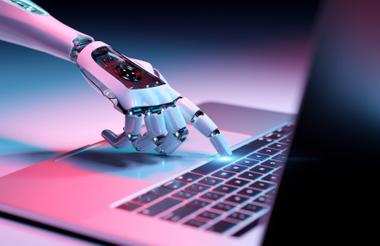Charities need not be overcautious about using artificial intelligence (AI), an event in London heard recently.
Addressing the annual Association of Charitable Organisations conference on 18 September, Sean Sinanan, impact lead at AI platform Plinth, advised charities against having a “binary mindset” about the new technology.
Sinanan said: “You’ve basically just heard two things about AI: either it’s going to be really good or really bad for the sector, and it’s quite a binary mindset.”
He added that the “the truth is probably somewhere in the middle”, with AI being able to perform many more menial tasks, such as writing case notes and grant applications, and maximise charities’ efficiency while enabling staff to focus on in-person activities.
His remarks followed a recent article for the Stanford Review in which AI was recommended by academics, including University College London researcher Angela Aristidou, as a way to improve relationships with charity supporters.
‘We mustn’t lose the human touch’
Sinanan added that despite AI’s benefits in terms of freeing up charities’ often small workforces' time to focus on in-person engagement, it remains important to “keep humans in the loop” when using the technology.
AI usage in the charity sector was a recurring theme during various talks across the day, with Sinanan’s sentiments being echoed elsewhere.
At a panel discussion earlier in the day, several representatives of employee support charities voiced the need for human contact to remain at the heart of every charity's interactions with beneficiaries, even with AI usage.
Ian Johnson, director of independence and wellbeing at veterans’ support charity Blesma, said that the charity was only using AI in its “back offices” and never in interactions with beneficiaries, adding that they were “very clear” on wanting face-to-face contact.
Meanwhile, Mandi Leonard, welfare director at GroceryAid, also emphasised the importance of human contact and suggested charities should avoid becoming so “technologically reliant” that they lose this aspect.











